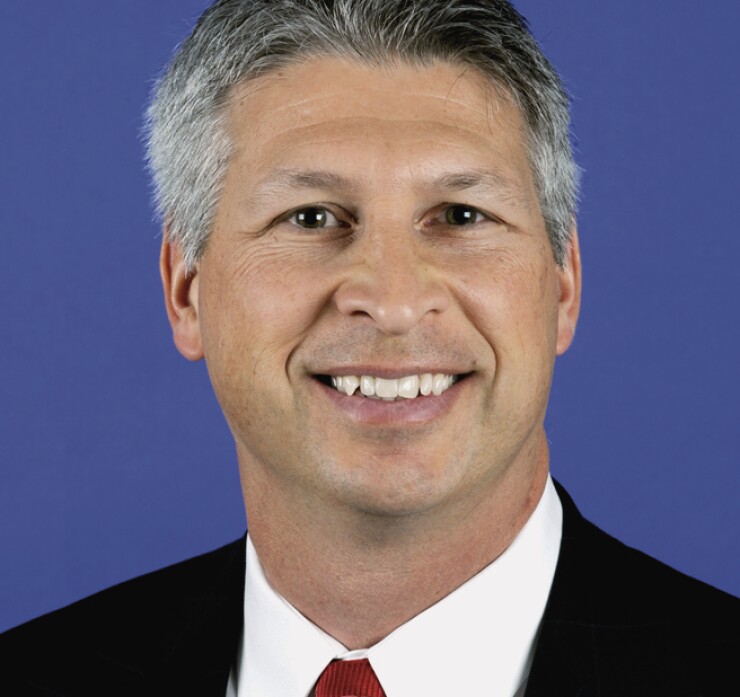
While younger investors are often risk-takers seeking high returns in the fast-paced equity market, owning municipal bonds can be an important part of a young entrepreneur's investment portfolio, municipal strategists said.
Traditionally, municipal bonds are geared to baby-boomers who are at or near retirement age and want a tax-efficient way to generate and preserve wealth for their retirement.
Municipal bonds can also provide investors in their 20s and 30s who are just starting their career paths, or who have already amassed a significant amount of wealth, with the benefits of capital generation, savings preservation, asset diversification, and supplemental income as they continue to move up the ladder of life and in their professions, the municipal experts said.
"If they have been successful and are earning a nice living, it might make sense to have muni bonds in their portfolios," said Dan Heckman, senior fixed income strategist in the wealth management division of U.S. Bank in an interview on Tuesday. The firm manages $120 billion in total assets, including municipals.
In fact, an investors' tax bracket is often more important than age when considering ownership of municipals, he said.
"Age doesn't come into play," Heckman said. "There are young investors that have done well and are in one of the higher tax brackets, so munis may make a lot of sense The state income tax rate really plays a significant role in determining whether munis are attractive or not" for investors — regardless of age, he said.
Credit and interest-rate risk are two other factors for young investors considering municipal bonds, according to Jeffrey Lipton, managing director and head of municipal research at Oppenheimer & Co.
"Young investors should do the math and consider taxable equivalent yields," he said. "Buying a bond from your state of residence makes the analysis even more compelling, as both federal and state tax-exemption would apply."
While municipals may lack the appeal of equities, they can still reap benefits to relative newcomers to investment, according to Lipton.
"For younger investors, bonds — particularly municipal bonds — do not generate a great deal of excitement," Lipton said. "However, for those in need of tax-advantage investments, having a small allocation to individual municipal bonds may be a way to offset stock market volatility, and to add tax-free income beyond maximum contributions to a Roth IRA."
Brian Rehling, chief fixed income strategist at Wells Fargo Advisors in St. Louis, Mo. in an interview on Wednesday, said muni's low default rates, the high likelihood of income generation and principal repayment, and their tax shelter attributes make them attractive to younger entrpreneurs.
The household sector, which includes retail, held $1.602 trillion in the second quarter of 2014, down from $1.609 trillion in the first quarter as a result of low interest rates, industry analysts said.
While those in their 20s and 30s typically have a high risk tolerance, seek maximum income, and have a long time horizon for savings, the rate environment presents an opportunity to reap rewards from municipal bonds.
"Right now muni bonds are in a unique position because the yields across various sectors are low, but munis rallied strongly and have better yields" than other fixed-income sectors year to date, Heckman said.
Besides the tax efficiencies of municipals, younger investors get the added benefits of owning high quality paper with steady cash flow and reinvestment opportunities from securities that don't have a lot of correlation to equities or other aggressive investments or non-fixed income classes.
"Anytime equities do poorly, bonds do well — that is a non-correlated asset," Heckman explained.
"Even a young person building out a balanced portfolio, having a non-correlated investment like munis could make sense," Heckman said.
Rehling said younger investors can shield their income from federal and state income from taxes, and can use municipals to provide stability to their taxable investments.
"I think for those that have already generated a tremendous amount of wealth and want stability in a portion of what they generated, I do think it makes a lot of sense," Rehling said.
Heckman added that when it comes to safety, municipals have less default and credit risk than corporate bonds — and therefore, younger, risk-averse investors can view municipals as a safe haven along with their U.S. Treasury holdings.
"Risk-adverse investing can come in any shape and form," Heckman said, adding that some younger investors begin building a municipal portfolio ahead of future increases in their income and tax brackets as they age.
Rehling, meanwhile, said younger investors have a longer time frame until retirement, so their allocations to municipals early on will be much less than those to equities.
"As they move through their investment lifecycle and approach retirement, over time those allocations should grow," Rehling said. "Where it becomes important is how much time you have left of earning power until retirement and your ability and willingness to take risks."





